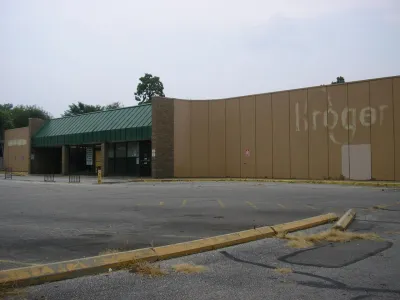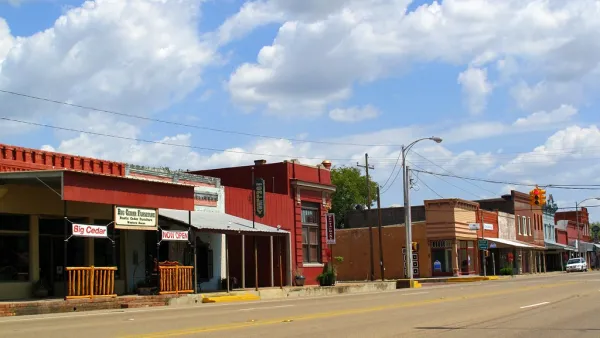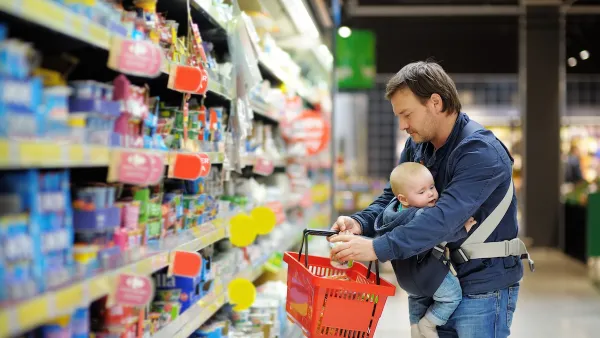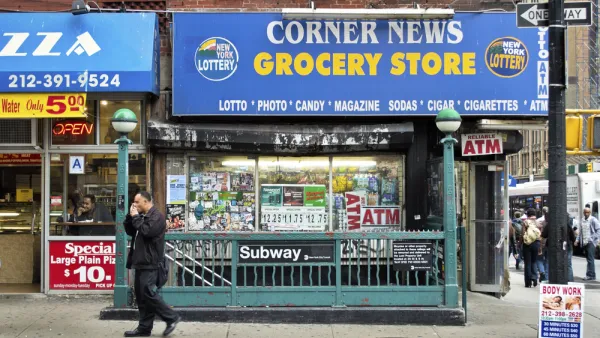Supermarket closings have turned parts of the city into food deserts. As a result, residents lack access to fresh food and suffer health and economic consequences.

Bailey Loosemore writes that food insecurity in Louisville, Kentucky, is affecting more people, particularly the city’s low-income and most vulnerable residents. In 2015, 44,000 Louisville residents did not have the transportation or financial resources they needed to get healthy, affordable food, and the problem has spread as grocery stores across the city have closed down.
As a result, residents spend time and money traveling to and from stores in other areas. If they cannot reach a store, they have to purchase food from a discount or convenience store or go hungry.
The lack of access to fresh food leads to an increase in chronic health problems and healthcare costs, part of a cycle people fall into when their options are limited, says Loosemore:
First, a food-insecure person is forced to make unhealthy choices if they want to eat regularly, often turning to cheaper, high-calorie foods when healthier items aren't available. A reliance on unhealthy food leads people to develop diet-related illnesses, such as diabetes and obesity. And in turn, people can become unable to work — further restricting their food budget.
Smaller, independent grocery stores have been replaced by chain stores that favor locations where they can put in supersized stores that turn over bigger profits. "For residents with cars and credit cards, the larger stores offer a one-stop-shop for everything from freshly sliced deli meats to packaged meal kits. But for residents without transportation, a trip to the grocery can become a daylong effort," reports Loosemore.
She notes that food banks and community health organizations are trying to fill in the gaps by identifying residents struggling with food insecurity and connecting them with resources.
FULL STORY: Sorry, we're closed: How everyone is hurt when grocery stores shut down

National Parks Layoffs Will Cause Communities to Lose Billions
Thousands of essential park workers were laid off this week, just before the busy spring break season.

Retro-silient?: America’s First “Eco-burb,” The Woodlands Turns 50
A master-planned community north of Houston offers lessons on green infrastructure and resilient design, but falls short of its founder’s lofty affordability and walkability goals.

Delivering for America Plan Will Downgrade Mail Service in at Least 49.5 Percent of Zip Codes
Republican and Democrat lawmakers criticize the plan for its disproportionate negative impact on rural communities.

Test News Post 1
This is a summary

Test News Headline 46
Test for the image on the front page.

Balancing Bombs and Butterflies: How the National Guard Protects a Rare Species
The National Guard at Fort Indiantown Gap uses GIS technology and land management strategies to balance military training with conservation efforts, ensuring the survival of the rare eastern regal fritillary butterfly.
Urban Design for Planners 1: Software Tools
This six-course series explores essential urban design concepts using open source software and equips planners with the tools they need to participate fully in the urban design process.
Planning for Universal Design
Learn the tools for implementing Universal Design in planning regulations.
EMC Planning Group, Inc.
Planetizen
Planetizen
Mpact (formerly Rail~Volution)
Great Falls Development Authority, Inc.
HUDs Office of Policy Development and Research
NYU Wagner Graduate School of Public Service





























